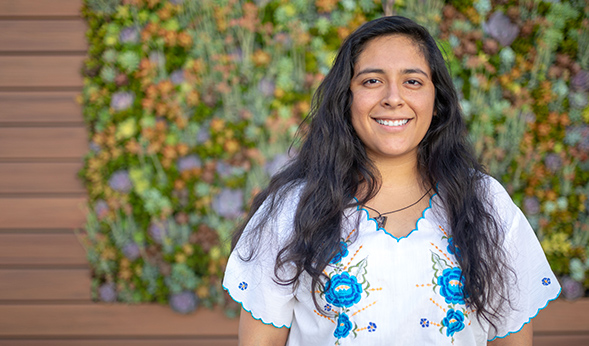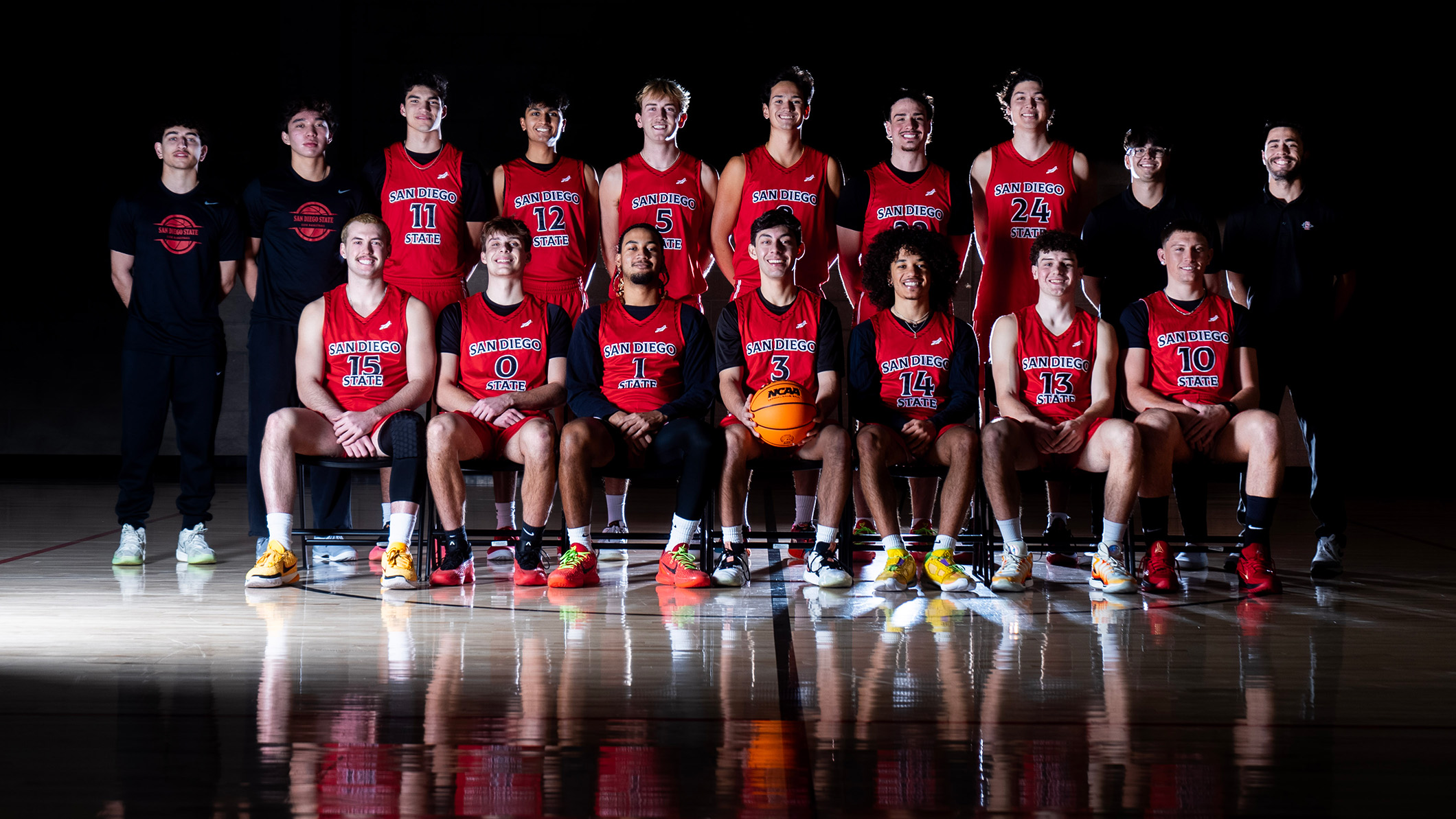Temporary Setback Displays Film Students' Resilience
SDSU film student Martha Rodriguez shows resilience when faced with the postponement of the Latinx film festival she created.

“This event is going to happen, no matter what. And when it does, the delay will allow me to be more prepared and the event will be better as a result.”
Clarification: The short film "Chips and Salsa" described in this article was written and co-directed by SDSU student Jonathan Richard Sotelo.
San Diego State University film student Martha Rodriguez’s dream of starting a festival that celebrates Latinx culture was about to become a reality, but due to the COVID-19 pandemic, everything changed.
To Rodriguez, however—an aspiring filmmaker who has made her mark as a burgeoning star in the industry over the past year—the turn of events is only a temporary setback.
“It was obviously disappointing,” Rodriguez said. “This event is going to happen, no matter what. And when it does, the delay will allow me to be more prepared and the event will be better as a result.”
In an interview last year, Rodriguez said her passion for filmmaking—and impetus to create the festival—stems from her desire to see the Latinx community better represented in film, both in the stories told and people who tell them.
“I really wanted to share stories that are untold and make my parents feel more comfortable in their own place, because this is their home,” Rodriguez said in a previous interview. “And it’s not just my parents, there’s a whole community that feels that loss of connection. And bringing that to them is fulfilling.”
The junior film major in SDSU’s School of Theatre, Television, and Film gained acclaim for winning the prestigious AT&T Film Award for best Spanish language short by a student with her film "Chips and Salsa." She followed it up by standing out at the University of Southern California School of Cinematic Arts Summer 2019 program, a six-week session where students learned production, directing, screenwriting, animation and business from some of the university’s top faculty at USC and Warner Bros. Studios backlot in Burbank. She attended the program as part of her AT&T prize.
Rodriguez participated in a contest at the end of the USC summer intensive, “El Pitch Faciuni,” which gives filmmakers a chance to pitch their next short film idea to an expert jury. Rodriguez won, taking home $1,500—the seed money she would use to organize the Latinx film festival on campus.
And while the festival is delayed, Rodriguez’s short film, “Identification,”—once set to debut at SDSU—now will premiere outside the United States.
TVCortos, a South American network, is airing her film and several others who won prizes during the El Pitch Faciuni contest that put Rodriguez on the map as a filmmaker to watch this summer.
Rodriguez said the runup to the festival was exciting.
“There were fliers everywhere, advertisements on the screens in the student union, it was really happening,” said Rodriguez. “It wasn’t until (March 13) when we found out we weren’t coming back to school that I knew it wasn’t going to happen. Everything happened so fast.”
Rodriguez said getting the festival to the point of fruition was still worthwhile.
“Wow, I never thought it was possible,” Rodriguez said. “I have been overwhelmed by the outpouring of support. By having a festival it shows that we are having changes and making progress as a Hispanic-Serving Institution.”
Rodriguez was referring to the federal designation that makes SDSU eligible for additional federal funding provided it maintains a 25% Hispanic undergraduate population, among other criteria. She pointed to the recent opening of the university’s Latinx Resource Center as another example of the progress on campus towards inclusion of the Latinx population.
“But when I got here on campus, I saw Hispanics represented in engineering and math and science, but what I also saw was a lack of representation in the arts,” Rodriguez said. “I think the fact that so many organizations were willing to throw their support behind the concept in such a short period of time tells you that the school really is committed to living up to its title of an HSI.”
The list of partners who came together to bring Rodriguez’s dream to fruition is deep and distinguished. One SDSU became the event’s co-sponsor when it funded the project with $1,500 in Associated Student funding.
Also throwing their support behind the project was the SDSU Office of Educational Opportunity Programs and Ethnic Affairs (EOP), the EOP Student Advisory Board, Latina Network, the SDSU School of Theatre, Television and Film; Teatro Aztec and the Weber Honors College.



